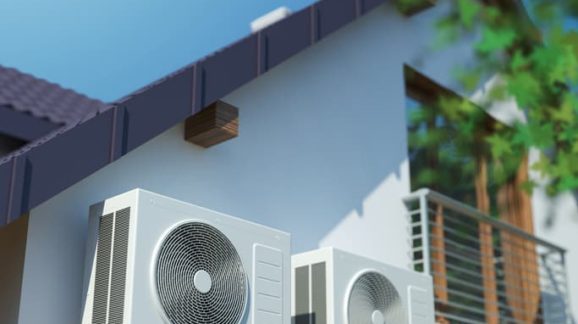Refrigerants Debate Moves to House

 American consumers dodged a bullet when the American Innovation and Manufacturing (AIM) Act (S. 2754) failed to become part of the larger Senate energy package, which has stalled on the Senate floor. Now the House has begun marking up its own version, H.R. 5544, starting March 11 in the Environment and Climate Change Subcommittee. Both bills would restrict future production of hydrofluorocarbons (HFCs) on the grounds that they contribute to climate change.
American consumers dodged a bullet when the American Innovation and Manufacturing (AIM) Act (S. 2754) failed to become part of the larger Senate energy package, which has stalled on the Senate floor. Now the House has begun marking up its own version, H.R. 5544, starting March 11 in the Environment and Climate Change Subcommittee. Both bills would restrict future production of hydrofluorocarbons (HFCs) on the grounds that they contribute to climate change.
The problem is that there are literally hundreds of millions of air conditioners and refrigerators that still need HFCs to repair leaks. This includes nearly every vehicle air conditioner, most residential air conditioners and refrigerators, and the equipment used in more than 1 million small businesses.
Indeed, HFCs have so many uses that a number of different sectors have raised concerns with one or more provisions in S. 2754/H.R. 5544, and they are beginning to come out of the woodwork. This includes the Association of Home Appliance Manufacturers, the Industrial Energy Consumers of America, the Extruded Polystyrene Foam Association, and others. Unfortunately, homeowners and car owners are not represented by lobbyists, so members are not hearing about the impacts on them.
On the other hand, the proponents of these measures have been aggressively lobbying for several years, first pushing the United Nations’ Kigali Amendment restricting HFCs—which President Trump has declined to submit to the Senate for the required ratification vote—and now its legislative equivalent. They are led by Honeywell, which has patented a number of costly replacements for HFCs. One, HFO-1234yf, retails at about $50.00 per pound, 10 times the price of the HFC it would replace.
Thus, not only will these bills raise the cost of repairing existing equipment that runs on HFCs, but they will also boost the price of new equipment designed to run on one of its replacements, many of which are flammable and thus present safety risks as well. Of all the categories of equipment, residential air conditioners may be the hardest hit, but so will others, such as commercial refrigeration. One representative of a restaurant equipment maker says the price boost can reach thousands of dollars per refrigerator.
It should be noted that these bills are bipartisan, evidence that Sen. Daniel Moynihan was right that some of the worst accidents are in the middle of the road. In particular, some Republicans, even those with misgivings about the Green New Deal and other extreme climate measures, have jumped aboard the HFC bandwagon as a relatively painless way to address climate change. But these bills, if they become law, would represent the first Congressional endorsement of targeting specific molecules based on their global warming potential. Once done for HFCs, it will become harder to hold the line against doing the same for carbon dioxide.
The House version now moves on to consideration before the full House Energy and Commerce committee, while the Senate version awaits a resurrection of the Senate energy bill.